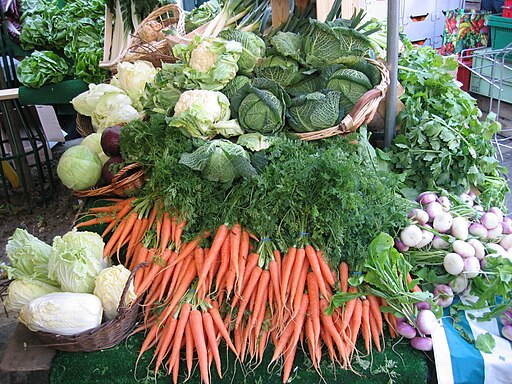Sixty-three percent of all deaths globally in 2008 were due to non-communicable chronic diseases and conditions, such as certain cancers, cardiovascular disease, obesity, and diabetes type 2, says the World Health Organization. Poor diets are major contributory factors in all of them.
In regions of the world where plant-based diets are more common, the national or regional rates for these types of diseases are considerably lower, compared to areas where animal-base diets are more prevalent.
Senior Writer/Editor, Toni Tarver, of Food Technology magazine wrote an article in which he discussed recent discoveries in nutritional genomics that explain why plant-based diets are good at preventing disease.
Tarver explains that cures for chronic diseases have eluded researchers for many years. However, recent studies into nutritional genomics suggest that stopping their progression is staring us in the face – simply change your eating habits.
Known as “the father of medicine”, Hippocrates said thousands of years ago “Let food be thy medicine and medicine be thy food.”
We live in a world that rewards innovation, which claims to strive towards better human health, and provides access to a wide range of culinary delights. However, the types of foods that are becoming more prevalent globally really do very little for good human health.
There is a much greater prevalence today of diets which are low in fiber, contain refined grains, animal products, are high in saturated fats and low in plant foods. Our dietary habits, especially in Western societies, have contributed greatly towards the increase in non-communicable chronic diseases.
Numerous studies over the last few decades have clearly shown that people whose diets include a large intake of plant foods tend to have a lower risk of chronic disease.
Plants have bioactive compounds that play an important role in controlling genetic and other biological factors that contribute towards the development of chronic disease.
Plant-based foods are usually rich in antioxidants. Antioxidants mop up free radicals that damage cells and cause chronic inflammation.

Raw vegetables can minimize or eliminate the effects some genes have on chronic disease risk
Studies have identified a number of genes and genetic mutations that are linked to a higher risk of cardiovascular diseases. Some of these gene variants make people more susceptible to raised cholesterol levels, some cause plaque buildup in the arteries, while others predispose the human body to hypertension (high blood pressure).
Chromosome 9p21 has been identified as a major predictor of heart disease. Scientists from McMaster and McGill universities, both in Canada, explained that the 9p21 genetic variants, the strongest markers for heart disease, were found to be modified when large quantities of raw vegetable, berries and fruit were consumed. Put simply, people with this gene variant naturally have a higher risk of heart diseases; this risk is significantly reduced if they eat lots of raw vegetable and fruits.
Dr. Jamie Engert, Joint lead-researcher, said:
“We know that 9p21 genetic variants increase the risk of heart disease for those that carry it. But it was a surprise to find that a healthy diet could significantly weaken its effect.”
Plant based diets can also protect against the formation of blood vessels that feed cancerous tumors (angiogenesis). The American Institute for Cancer Research (AICR), in February 2011 published a report explaining how many cancers can be delayed or even prevented through a balance of regular physical activity and a plant-based diet.
When commenting on the link between older age and a higher risk of cancer, AICR Nutritionist Alice Bender, MS, RD. explained that we cannot control our age, but we can control cancer risk. “That’s what more and more research is showing, and that’s what people of all ages, particularly those over 50, who bear the highest cancer risk, need to understand. Evidence from the lab and the clinic suggests that these Americans can significantly lower their risk. ‘It’s never too late’ is good news for American worried about their cancer risk. We should take that to heart and feel empowered by it.”
The thrust of Tarver’s article is:
- Genes – our susceptibility to developing chronic diseases is in our genes. Our genes are our fate that we inherited from our ancestors.
- The choices we make – our environment has an impact on what those genes can do. Within that environment is the choice of foods we eat.
A plant-based diet can minimize and even eliminate in many cases our susceptibility to these chronic diseases. “The science still supports the wisdom of eating a diet that is predominantly made of plant foods.”
President and Medical Director of the Angiogenesis Foundation in Cambridge, Mass., William W. Li, M.D., explains that we all should take a good look at our diets. We should see food as an essential medication for good health. A healthy diet is a major contributory factor for leading a disease-free life.
Dr. Li said:
“Prevention is always better than a cure.”
The list of foods that can prevent cancer and other chronic diseases is long, and include cinnamon, garlic, watercress thyme, rosemary, pumpkin, olives, lentils, black pepper, artichokes and many more.
Written by Christian Nordqvist